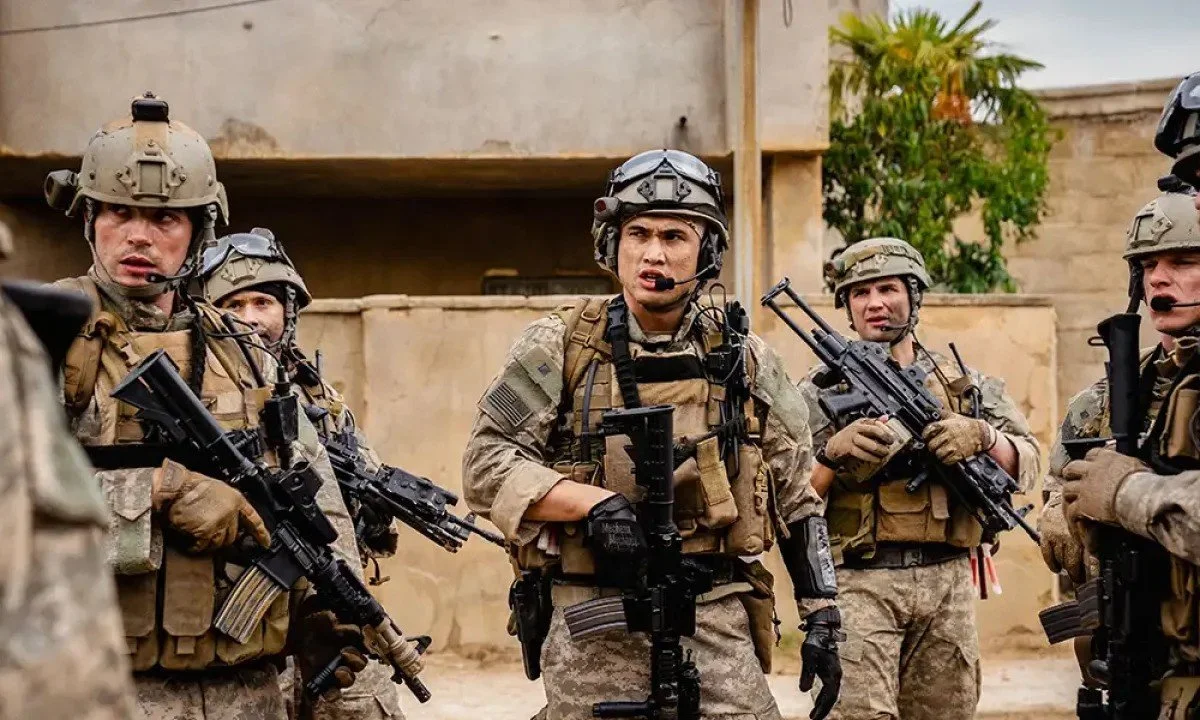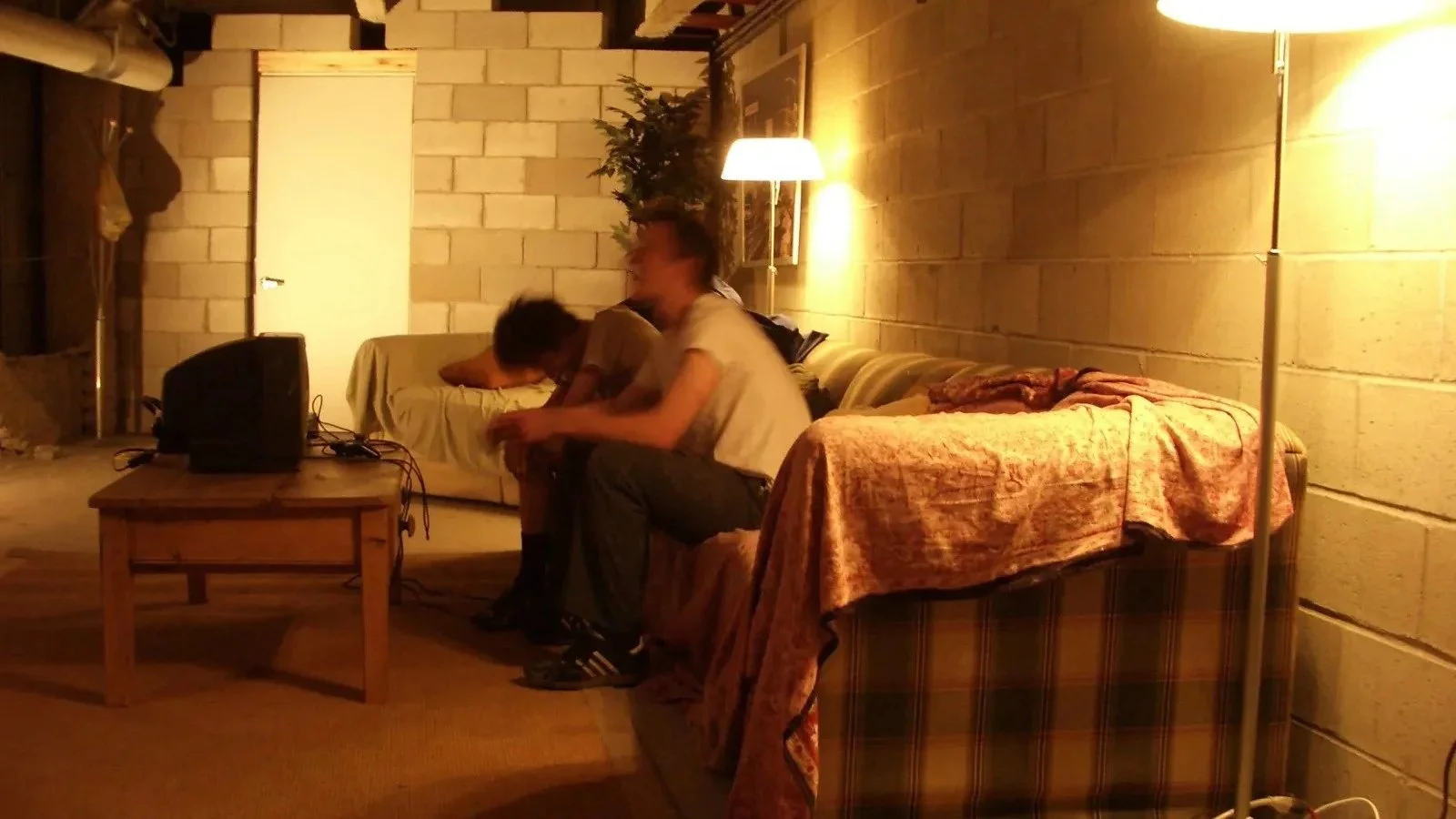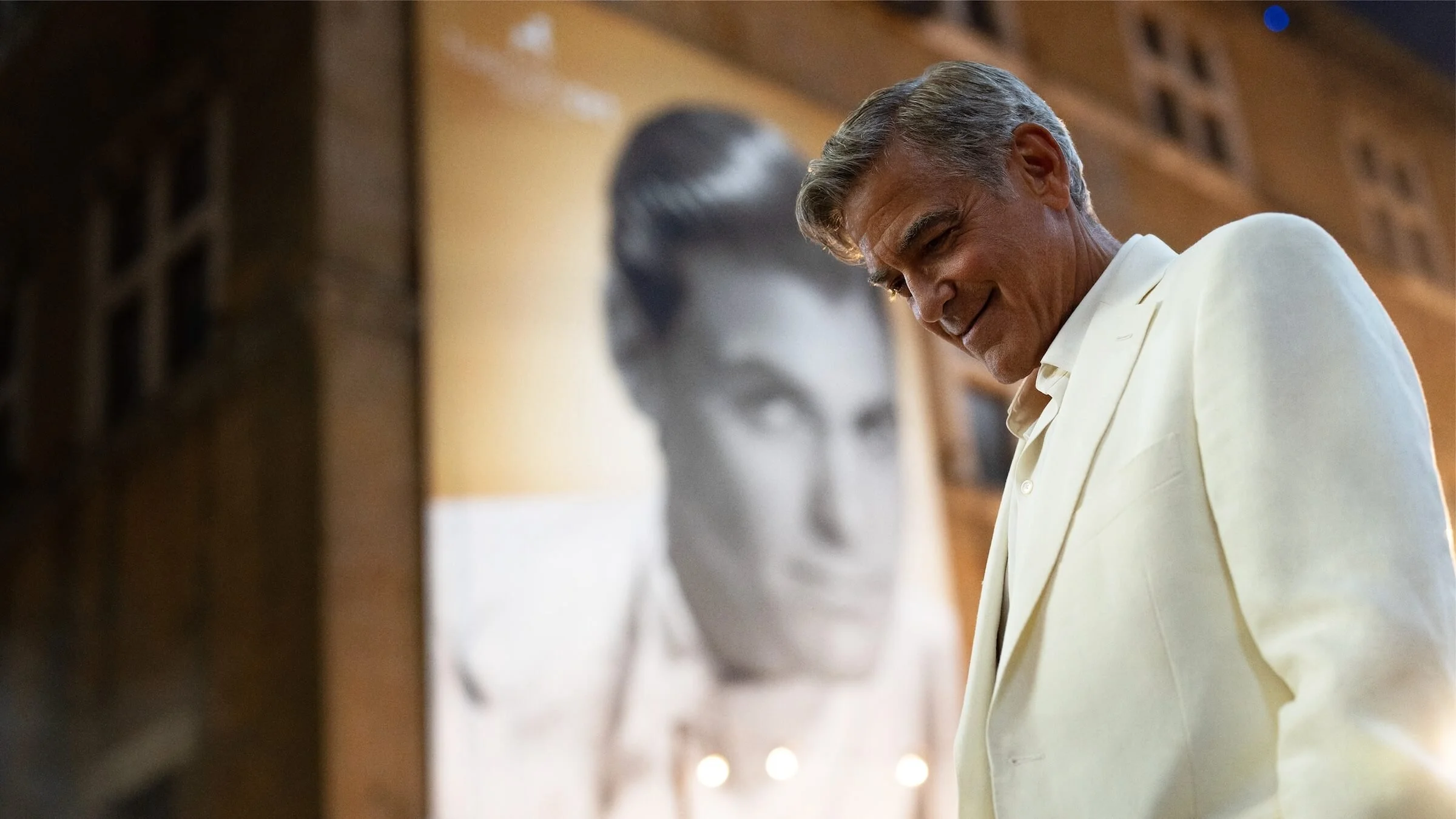Review: Warfare (2025)
Ray Mendoza and Alex Garland’s Warfare is an exercise in time and place, not narrative or theme. It’s perhaps the war film that most embodies the famous line from Macbeth about life being “a tale of sound and fury, signifying nothing.” In Warfare, all that matters is survival. You execute the mission and you get out alive. Morals, backstories, grand narratives about the cost of war and the value of brotherhood are left behind like the eviscerated corpses chewed to pulp by an IED. The intensity is the point, and Warfare certainly is intense.
Based on Mendoza’s own wartime memories of serving as a Navy SEAL during the Battle of Ramadi in the Iraq War, the film is a contained examination of a mission gone wrong. In the opening moments, Mendoza’s (D’Pharaoh Woon-A-Tai) platoon invades a two-storey home of an Iraqi family and sets up sniper positions to watch suspected militants on the other side of the street. Once the sun comes up, they watch the militants and eventually, the militants engage, correctly suspecting they’re under surveillance. One of the snipers is severely injured and the platoon calls for “evac.” And then it becomes a waiting game.
The unadulterated, seemingly minute-to-minute procedural detail of the film is its chief selling point. It’s been done before, first to an extent with Ridley Scott’s Black Hawk Down (2001) and later, to perfection, in Christopher Nolan’s Dunkirk (2017). Dunkirk is ultimately the most successful survival war film of the three: brilliantly structured, impressively anti-war, ingeniously limited in its narrative perspective, and, thus, most effective in making us care so desperately for the wellbeing of its characters. Black Hawk Down is effective, as well, but it’s as focused on the emotional rush of war as it is about the procedural details of evac. Warfare is more like Black Hawk Down than Dunkirk, more focused on the intensity, and even more obsessed with the procedural detail. If you’ve ever wanted to be embedded with a SEAL team without risk of harm, Warfare is likely as close as you’ll get.
But Warfare does lack the affection and personality that would make you more invested in its characters’ survival. You don’t get backstory in the film aside from what can be inferred from listening to downtime conversations between the soldiers as they wait for relief. Even the actual purpose of the mission is unclear beyond the immediate surveillance and engagement of the militants across the street. There are no heroic character arcs or impressive feats to document. There is simply what life ostensibly is like for soldiers on a mission they don’t entirely understand and running into troubles they didn’t anticipate.
The verisimilitude is impressive. Warfare is loud and chaotic, taking the urban combat portions of Garland’s own Civil War from last year and amplifying them for maximum impact. We watch men get blown apart by IEDs, snipers provide covering fire, men moving from one position to another and getting on comms to try to secure their safety. There’s a lot of grunting and swearing and bleeding. The film is peppered with military jargon and does nothing to make any of it comprehensible for the audience, and that’s the entire point. We are embedded with these soldiers and forced to react as they are, limited to their emotional experience of their circumstances.
Hardware junkies will likely delight at the film’s attention-to-detail, its grit and grim military flavour. I’m impressed by how uncompromising it is formally and narratively. It does nothing to buffer the experience for audiences or pander to a desire for clear-cut heroics and character arcs and thematic payoffs. The approach is almost experimental. But then you have to wonder, aside from David J. Thompson’s steadicam cinematography and the blisteringly loud sound design, what is there to get out of the film, aside from the adrenaline rush? Do we even care about these people, who are essentially anonymous soldiers, pawns in a game of chess?
The most you can say is that Garland once again creates an overwhelmingly ambiguous portrait of America, furthering some of his provocations of Civil War, pushing the film’s ambiguity to opaque (even frustrating) depths. The way that Garland presents the entire mission in Warfare suggests that it is essentially meaningless. The men who die do so for no stated or good reason. There’s no accomplishment beyond survival. The Iraqi family whose home they invade has their lives ruined in the process, so we are even shut off from the sort of small, personal victories that are often present in anti-war movies. In Warfare, it’s all pointless, which really sums up the Iraq War: a grand experiment in nation building that produced nothing but death. Garland uses the film’s impersonal procedural nature to shed a critical eye on America.
There is also an ironic undercurrent to Garland’s chilly approach, but it is something to be surmised and interpreted after the fact, not understood emotionally in the moment. Scene-to-scene, Warfare is procedural fury, nothing more. Of course, Garland’s ambiguity sits uneasily alongside Mendoza’s respect for the troops. The film ends with footage of the real soldiers portrayed in the film, as well as behind-the-scenes footage of the actors and production crew paying tribute to these men in person.
Mendoza’s obligatory ending saluting the veteran experience sits uneasily alongside Garland’s critical distance, producing a film that is stuck between implicit critique and emotional support for America’s war machine. To be fair, most war movies exist in this divide. As Francois Truffaut pointed out, it’s essentially impossible to make an anti-war war film, since war is too emotionally engaging, too viscerally intense, too cool, to provide a needed Brechtian distance that forces the viewer to recognize what a profound abomination it is. Thus, the inability of Warfare to resolve this tension is hardly novel. But in a film where there’s not much beyond the actual material itself, it’s perhaps more obviously limiting than you get in more varied, less procedural work.
6 out of 10
Warfare (2025, UK/USA)
Written and directed by Ray Mendoza and Alex Garland; starring D’Pharaoh Woon-A-Tai, Will Poulter, Cosmo Jarvis, Kit Connor, Finn Bennett, Joseph Quinn, Charles Melton.



Joe Carnahan’s cop thriller starring Matt Damon and Ben Affleck is an enjoyable whodunnit.